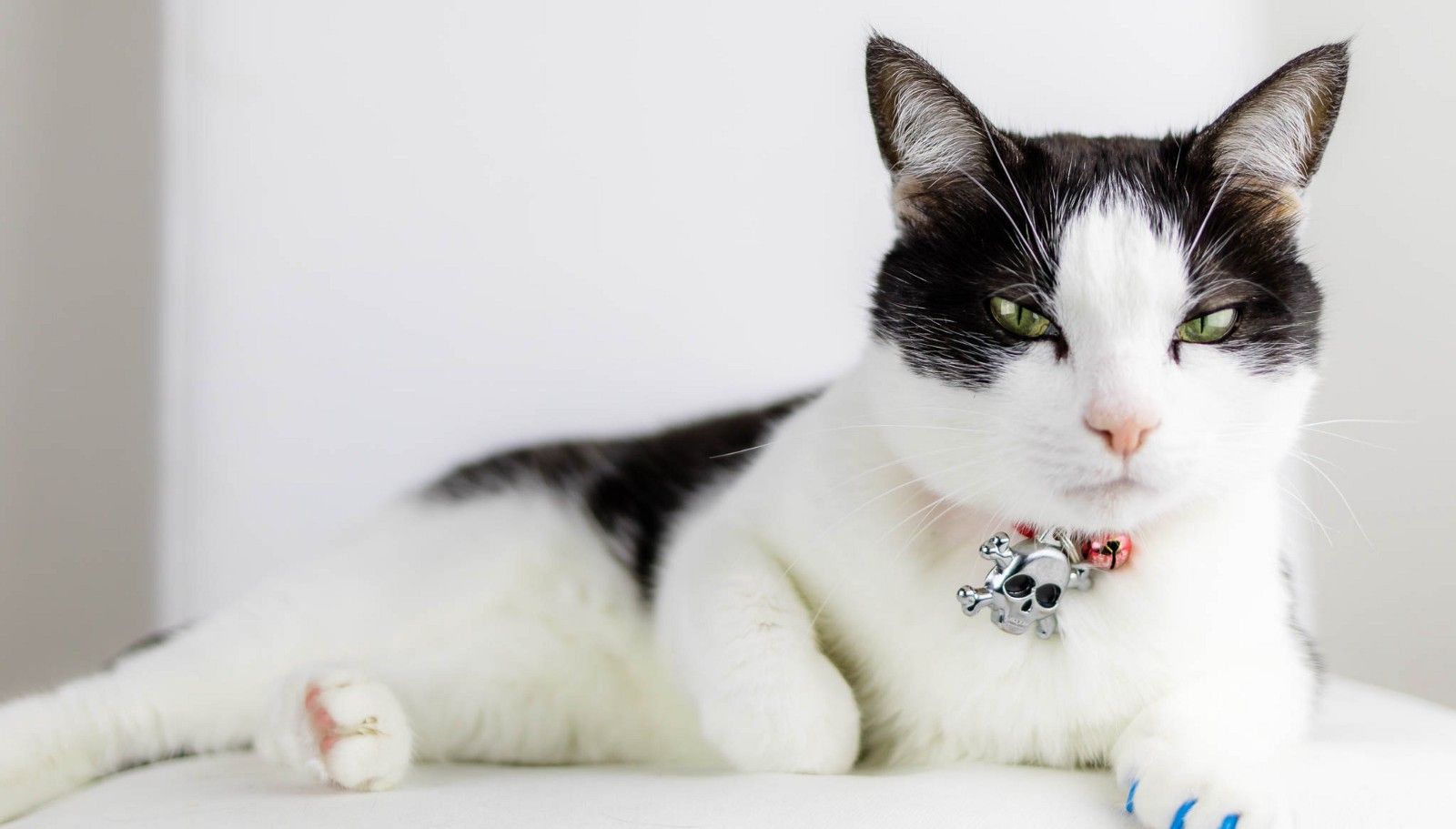
Did you know that a group of twenty cats is called a clowder? Or that a cat was the mayor of Talkeetna, Alaska for 15 years. Or perhaps, that adult cats only “meow” to communicate with humans. Or maybe this one, “Cats are liquid because they can fit anywhere.” Fun facts, yes, but aspects of cats that are fascinating and enigmatic. Cats are creatures that amaze us as much as baffle us at time with their behaviors, patterns, and personalities. So, what does this have to do with your indoor kitty and its health? Simple. Cats are mysterious but making sure they live long healthy lives both indoor and out doesn’t have to be.
Cats are good communicators. They will let you know when they are hungry or when you need to clean the litter box, but they are also good deceivers. Cats tend to hide when they are in pain or uncomfortable. Many cats in need of a dental cleaning will still eat dry food despite a cracked tooth or possible mouth infection. Sometimes your kitty will begin to urinate slightly more or groom slightly less, a habit that appears benign, but could be an indicator of kidney disease or skin issues. Much like us, cats do not want to burden their owners and will continue with the status quo when they have an ailment. The best way to keep your kitty healthy and to show them you care is with a yearly or semi-annual visit to the vet.
At the exam, your kitty will get vaccinations, an overall body condition examination, and an annual bloodwork & fecal screening. I know what you’re thinking, my kitty doesn’t appear unhealthy, why is this important every year? Well, we’ll break down each of these areas to explain why the annual is the kindest and best medicine for your furry friend.
First, we’ll look at vaccinations. The core vaccines, vaccines recommended to be updated regularly, for kitties are FDRCP and Rabies. FDRCP covers the following viruses: Rhinotracheitis, Calicivirus, and Panleukopenia (feline Distemper). All of these viruses are airborne and if not treated properly can cause severe illness, even death. A cat can catch these viruses at any age, during any time of the year. Being indoor doesn’t protect your pet from these viruses but being vaccinated yearly does. The Rabies vaccine is legally required for all pets in Franklin County. Going beyond that - if your pet was ever to escape your home via an open window or unaware maintenance person, having them vaccinated would give them some protection from encounters with rodents, such as raccoons, or unvaccinated cats.
Second, we consider the overall body condition exam. We love our kitties and sometimes that love may look like an extra helping of treats or the occasional piece of bacon on the sly. The best way to know if we’re showing our kitties the proper love is to know where they are at physically, by having a veterinarian thoroughly evaluate them. Then we as owners can be the cheerleaders of their health. Is your kitty’s coat shiny and clean? Do they vomit hairballs? Do they play a lot or are they sleepy a lot? Do they drink a lot of water? Has any of this changed with them in the last week or month or year? These are questions we may not ask ourselves about our indoor cat, but a veterinarian will consider these when checking them over. Many indoor cats are overweight due to inactivity and diet, which can lead to diabetes. Some indoor cats have undiagnosed health conditions associated with vomiting, or their skin, or their bathroom habits. Tracking them every 6-12 months with a vet visit, helps document their weight, physical appearance, and overall well-being in a way that will help you as the owner determine if they need medical or environmental intervention.
Third, and finally, is the importance of bloodwork and fecal screenings for our indoor friends. Remember earlier in this article, when I said, “Cats are liquid.” Well maybe, you’ve heard this one, “still waters run deep.” Cats are still waters, meaning they won’t tell you if something is going on internally. A physical exam can only go so far, but bloodwork and fecal testing will give you some indicators of diseases or conditions within the body or parasites in the stool. Bloodwork looks at kidney, thyroid, and liver function, chemistries for the body, and blood counts. It creates baselines, maps of how your kitty ages and how their body changes. Fecal screenings let us know if there is a parasite in your kitty’s stool from eating something off your shoe or off the carpet, unbeknownst to you the owner. These diagnostics allow you to treat you cat with proper medicine if problems arise and help keep them the healthiest they can be without making them feel like a burden.
So, what have we learned today friends, other than cats are awesome and can hold office? We as the owners have the power to do the kindest thing for our pets and the kindest thing can be the simplest thing, yearly exams for our indoor kitties. Whether you have one or a clowder, one visit a year can make all the difference in keeping them healthy so they can keep entertaining and mystifying us for years to come.





